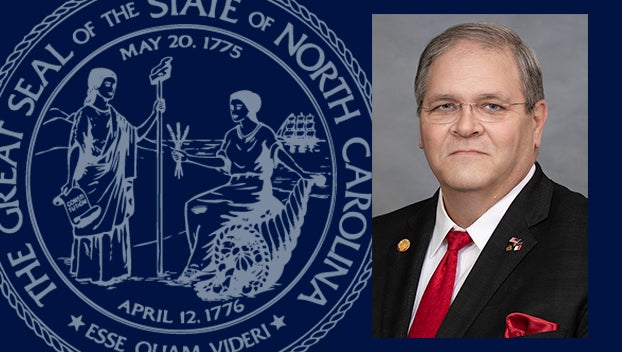Boy Scout Troop 99 offers a selection of fresh-cut Frazer firs
Published 7:47 pm Tuesday, November 24, 2015

MIKE VOSS | DAILY NEWS
THEY’RE HERE: Boy Scout Jeremy Jarvis (left) and Scout leader Dal Newbold (right) unload 220 Fraser firs Tuesday with assistance from volunteer Josh Ingram (background), other Scouts and Scout leaders. The sales lot is next to the dental office at 629 W. 15th St.
The turkey’s bought. Some of the out-of-town relatives arrive today for the holiday. Is there anything left to do to usher in Thanksgiving and the Christmas season?
Boy Scout Troop 99 knows there is — buying those freshly cut, live Christmas trees Troop 99, sponsored by Washington’s First United Methodist Church, begins selling North Carolina-grown Christmas trees at 9 a.m. today, with the sales lot on West 15th Street (across from East Coast Wings) closing at 8 p.m. today. The lot will be closed Thanksgiving, but will be back in business Fridays and Saturdays from 8 a.m. to 9 p.m. The lot will be open from 11 a.m. to 8 p.m. Sundays through Thursdays.
The trees, delivered Tuesday afternoon, range in price from $40 to $120, according to Daniel Stevens, a Scoutmaster for Troop 99. The trees range in size from about 6 feet tall to about 10 feet tall.
Scouts work at the lot, doing various tasks such trimming lower branches from the trees to improve the trees’ appearance.
“The Scouts help pick them out. They help take them to your car. … This is a really how the Scouts pay for their activity fees, summer camp. A lot them would not go to summer camp if they were not working this tree lot. They have a special Scout account they can earn money for. This pays for activities and travel they do all year,” Stevens said.
Scout Jeremy Jarvis has been working at the Christmas tree lot for about five years. He estimates he will work from about 50 hours to about 100 hours this year.
“We get a little bit of money to pay for our camping trips,” said Jarvis, adding that unloading the truck that transported the trees from Harry Yates’ Christmas tree farm in western North Carolina to Washington is hard work.
As the trees came off the truck, other Scouts and their leaders arranged them in stacks according to height. Some of the trees were immediately set up on the lot, their nettings cut so they could display their fullness.
The troop has regular customers for its Christmas trees. Those customers return year after year to help support the Boy Scouts and their work in the community.
The Fraser fir, according to area Christmas-tree sellers, is the preferred tree bought by area consumers. Other species sold for use as Christmas trees include white pine, Virginia pine and Norway spruce, according to the N.C. Department of Agriculture & Consumer Services.
North Carolina ranks second in the nation in live Christmas tree harvested annually, and it produces 19 percent of live Christmas trees sold in the nation, according to the N.C. Christmas Tree Association in Boone. Fraser firs represent more than 98 percent of all Christmas tree species grown in North Carolina. The state has about 1,300 growers producing Fraser firs on about 40,000 acres.
Caring for a Christmas tree
With that special tree selected, paid for and taken home, it needs to be cared for in a manner similar to a fresh bouquet of flowers. It should be placed in water immediately. If for some reason the tree is not placed in water for more than 12 hours after it is harvested in the field, a fresh cut should be made by removing half an inch from the base of the trunk before placing the tree in a stand. The stand should be kept full of water throughout the season. A Christmas tree may take up to a gallon of water the first 24 hours and several pints each day thereafter.
Keeping the tree in water is the most important part of Christmas tree care. Special preservatives such as sugar, aspirin or cola are not required to preserve freshness. All that is needed is plain, clean tap water in sufficient quantity to keep the base of the tree covered at all times.
Christmas trees should be placed in cool areas away from drafts and potential sources of warm air. Trees should not be placed near fireplaces, heaters, furnace vents or television sets.
Christmas trees do not cause fires, but they should not be placed near sources of ignition. Light cords and connections used on the tree or in other holiday decorations must be in good working order to ensure a safe and joyous holiday season. Lights should always be unplugged when leaving home or going to bed.
Source: N.C. Department of Agriculture & Consumer Services






